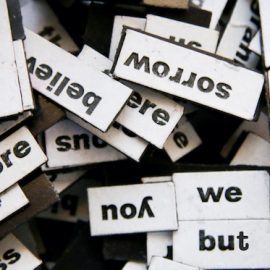

This article is an excerpt from the Shortform book guide to "The Leadership Challenge" by James M. Kouzes and Barry Z. Posner. Shortform has the world's best summaries and analyses of books you should be reading.
Like this article? Sign up for a free trial here .
Why is it important to recognize job performance? What is the best way to recognize employee performance?
When you recognize the performance of your team members, they will strive to function at their highest level. For maximum impact, you should always personalize your recognition to each team member. Personalized performance recognition lets them know you’ve noticed them in particular for a specific accomplishment.
Here are three ways to personalize employee performance.
How to Recognize Employee Performance
People consistently report that the most meaningful performance recognition they’ve received is personal rather than financial. In fact, relying on financial recognition to the exclusion of any personal recognition can be demotivating rather than motivating. For example, one manager at Wells Fargo had a habit of rewarding his team members with bonuses for good work, but never reached out and thanked them personally or gave them any encouraging feedback. Instead, he would simply include a bonus to their paycheck with no explanation. The random and inconsistent nature of the rewards, coupled with the lack of guidance, left his team unable to determine when they were doing well or why. Morale and productivity decreased as a result.
To personalize your performance recognition:
- Get to know your team on a personal level.
- Get creative with incentives.
- Say “thank you.”
1. Get to Know Your Team on a Personal Level
Conventional wisdom dictates that you shouldn’t become friends with people you work with. However, research disproves this. In surveys, employees who say they have a friendly relationship with their superiors report being two-and-a-half times more satisfied with their jobs.
Get to know your team members on a personal level. Go out of your way to speak to them outside of your respective roles. Walk the halls, visit your factories, and regularly meet in small groups with colleagues, suppliers, and clients.
Further, encourage friendships among team members. When people feel a personal connection to others, they’re motivated to work harder because they don’t want to disappoint people they consider friends.
In a five-year study, researchers observed different groups of people cooperating on motor-skill and decision-making tasks. Some of these groups were made up of friends and some of only acquaintances. The groups of friends completed more than three times as many projects as the groups of acquaintances.
2. Get Creative With Incentives
One of the best ways to personalize your recognition of someone’s efforts is to get creative with it. Informal, spontaneous rewards can often be more meaningful than formal ones.
A personalized reward that shows you know the other person is far more meaningful than a generic reward. For example, you might give gas cards to employees who travel or an iTunes card to someone who likes music.
Don’t be afraid to get silly. Adding humor lifts morale; for example, managers have had great results giving out stuffed giraffes, mugs with a team photo, classic car rides, and so on. One team adopted a large plastic fish that would reside at the desk of the employee of the month.
Recognize effort in real time: Recognition is often most effective when it’s immediate. Don’t wait until a project is completed to dole out praise—recognizing when people are performing well while they’re in the middle of a project is more encouraging. Even small amounts of praise go a long way when delivered in the moment.
3. Say “Thank You”
The simple act of saying “thank you” is perhaps the easiest and yet most frequently overlooked way to make your team members feel personally recognized. The phrase can have an outsized effect on employee morale because people want to feel that what they do makes a difference and is noticed.
Personal congratulations consistently rank at the top of the list of most powerful motivators, as reported by employees. Studies show that 81% of people say they’d work harder if they had a more appreciative supervisor.
For example, when the law firm Sullivan and Cromwell noticed their first-year recruits were leaving the firm sooner than expected, they conducted surveys and found that the workers didn’t feel appreciated by their supervisors. The firm enacted a policy requiring all partners to say “Please” and “Thank you” when making a request. This simple change reversed the attrition; one year later, American Lawyer magazine voted the firm the best law firm to work for.
Expressing gratitude has another benefit: It makes the person giving thanks feel good, too. Research shows that people who show gratitude are more optimistic, healthier, energized, and better able to manage stress.
Look for opportunities to recognize, thank, and encourage your team members every day. You might even use a physical prompt to help you remember to do this—for example, you might put three pennies in your left pocket and move one to your right pocket each time you recognize someone, aiming to have all three in your right pocket by the end of every day.

———End of Preview———
Like what you just read? Read the rest of the world's best book summary and analysis of James M. Kouzes and Barry Z. Posner's "The Leadership Challenge" at Shortform .
Here's what you'll find in our full The Leadership Challenge summary :
- A field guide for becoming the kind of leader that other people want to follow
- The five principles of leadership and their associated guidelines
- Why before you can lead others, you must have a clear understanding of yourself






